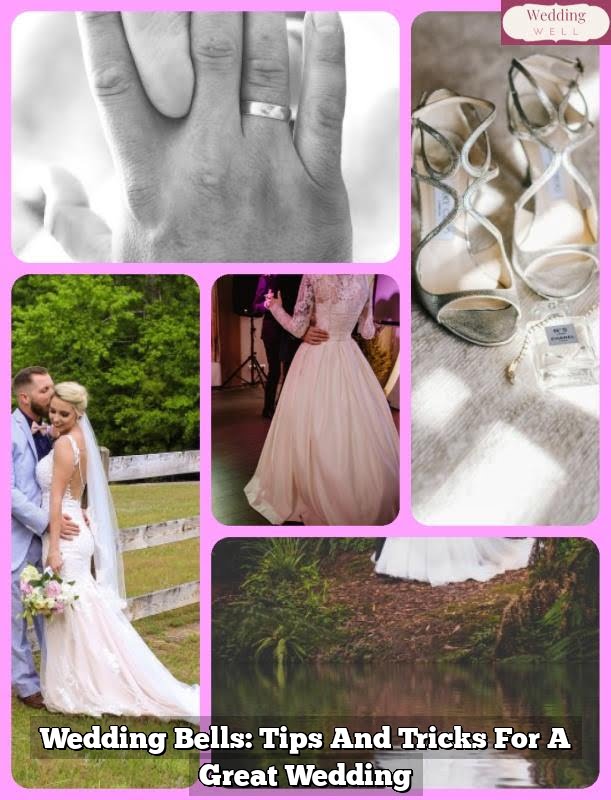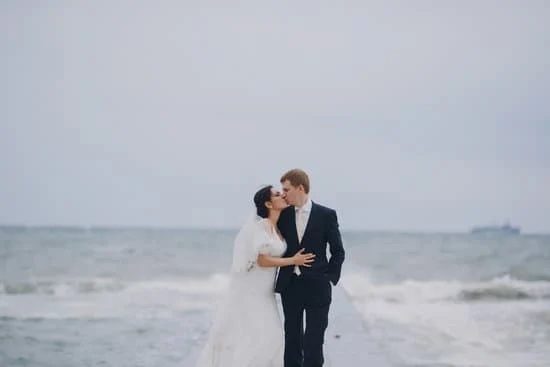What happens when someone objects at a wedding? In traditional wedding ceremonies, there is a moment when the officiant asks if anyone present objects to the union of the couple. This seemingly outdated ritual has a long history and carries legal, emotional, and cultural implications that can impact the couple and their loved ones.
The act of objecting at weddings has roots in ancient customs and traditions, with its significance evolving over time. From its origins to how it is perceived in modern society, the history of objecting at weddings provides insight into the implications of this potentially disruptive gesture.
While objections at weddings may seem like a rare occurrence, there are legal consequences and considerations that come into play if someone does raise an objection during a ceremony. Understanding the legal implications is crucial in comprehending the weight of such an act during one of life’s most significant events.
As we delve into this article, we will explore not only the legal aspects but also the emotional impact on the couple and how such an objection can affect their relationship and mental well-being. Additionally, we will discuss how objections are handled during wedding ceremonies, as well as real-life examples and cultural perspectives on this age-old tradition.
The History of Objecting at Weddings
The tradition of objecting at weddings can be traced back to ancient Roman times, where marriages were often arranged for political or economic reasons rather than love. In these instances, the objection was a way for members of the community to voice their concerns about the union, such as potential conflicts between families or individuals.
Over time, the significance of objecting at weddings evolved, and it became more common in Christian ceremonies as a means of ensuring that there were no legal impediments to the marriage.
In medieval England, the Church declared that couples should be “asked three times” if they had any objections before their union was sealed. This practice was intended to give an opportunity for any existing legal or moral reasons why the couple should not be married to come to light. While objections were relatively rare, they were taken seriously and could result in the marriage being called off.
As societies have shifted towards a more individualistic approach to marriage, the practice of objecting during wedding ceremonies has become less prevalent. Today, many couples choose to write their own vows and personalize their wedding ceremonies, often omitting the traditional question about objections altogether. However, in some cultures and religious traditions, the concept of objecting at weddings still holds significance and may be incorporated into the ceremony in various ways.
| History | Significance |
|---|---|
| The tradition dates back to ancient Roman times | Evolved as a means of ensuring there were no legal impediments |
| In medieval England, couples should be “asked three times” about objections | The practice was intended to reveal any possible legal or moral reasons against marriage |
| In modern societies, this tradition has become less prevalent due to individualistic approaches to marriage | Many couples personalize their ceremonies and may omit this traditional question |
Legal Implications of Objecting at a Wedding
When it comes to the legal implications of objecting at a wedding, there are several factors to consider. From a historical perspective, the idea of objecting at a wedding can be traced back to a time when marriage was more of a business transaction than a declaration of love and commitment.
In those days, objections were typically raised if there were legal or financial reasons why the marriage should not take place. However, in modern times, the significance of objecting during weddings has evolved.
From a legal standpoint, while the act of objecting at a wedding may have once held weight in determining the validity of a marriage, today it holds little to no impact on the legal proceedings. In most cases, if someone does decide to raise an objection during a wedding ceremony, it is ultimately up to the officiant and the couple to determine how they will proceed.
Legally speaking, there may be no consequence or impact on the validity of the marriage.
In some jurisdictions, an objection raised during the ceremony might prompt the officiant to pause and address the concern before continuing with the marriage rites. However, it’s important to note that unless there is concrete evidence of fraud or coercion, objections raised during weddings are generally dismissed. In essence, while there may be historical and emotional significance attached to objecting at weddings, from a legal standpoint it holds very little weight in today’s society.
Emotional Impact on the Couple
It is a moment that many couples dread – the part of their wedding ceremony where the officiant asks if anyone has any objections to their union. While this tradition may seem outdated and unlikely to happen in modern times, there are still instances where someone does raise an objection during a wedding. This section will explore the emotional impact that this can have on the couple involved.
Feelings of Shock and Disbelief
When someone objects at a wedding, it can be a shocking and unbelievable moment for the couple getting married. After months or even years of planning, anticipation, and excitement, having someone interject with an objection can feel like a sudden jolt of negativity. The couple might experience feelings of disbelief that such a disruption could occur on what should be one of the happiest days of their lives.
Emotional Turmoil
The emotional turmoil that follows an objection at a wedding can be significant. The couple may feel an overwhelming sense of sadness, anger, embarrassment, and confusion all at once. This unexpected turn of events can cast a dark cloud over what was supposed to be a joyous occasion, causing deep emotional distress for both the bride and groom.
Potential Repercussions
The impact of someone objecting at their wedding ceremony can extend beyond just the day itself. It might lead to ongoing repercussions in the relationship and mental well-being of the couple. They may struggle with trust issues, anxiety about future disruptions, and even lingering resentment towards the person who raised the objection. All these emotions can take a toll on the couple’s mental health and their relationship moving forward.
Handling an Objection at a Wedding
Weddings are considered to be one of the most joyous and meaningful occasions in a person’s life. They are a celebration of love, commitment, and the beginning of a new journey for the couple.
However, there is always the possibility that someone may object during the ceremony, which can potentially disrupt the proceedings and create a tense atmosphere. In this section, we will explore what happens when someone objects at a wedding and how to navigate this delicate situation with grace and respect for all involved.
Steps Taken by the Officiant and Couple
When an objection is raised during a wedding ceremony, it is important for the officiant and the couple to handle the situation calmly and respectfully. The officiant will typically pause the proceedings and address the individual who has raised the objection. They may ask for clarification or give them an opportunity to express their concerns. The couple may also have the option to address the objection directly or choose to continue with the ceremony after acknowledging it.
Navigating With Grace
In any case, it is essential to navigate this challenging moment with grace and sensitivity. It is important for all parties involved to remain composed and avoid escalating the situation. The couple should be supported in making their own decision about how they wish to proceed, whether it involves addressing the objection or choosing to move forward with their vows.
Respect for All Involved
Regardless of how an objection at a wedding is handled, it is crucial for everyone present to show respect for each other’s feelings and opinions. The focus should remain on honoring the couple’s union while finding a way to address any concerns or objections raised in a respectful manner. Ultimately, handling an objection at a wedding requires a delicate balance of empathy, understanding, and consideration for all involved.
Real-Life Examples of Objections at Weddings
When it comes to real-life examples of objections at weddings, there are a few notable instances that have made headlines over the years. One such case occurred in 2014 when a groom’s ex-girlfriend stood up during the ceremony and objected to the marriage, claiming that the groom was still in love with her.
This unexpected interruption caused chaos and distress, leading to a temporary halt in the proceedings as the situation was diffused by the officiant and wedding party.
Another real-life example took place in a small town where the bride’s father objected to the marriage because he disapproved of the groom’s religion. The emotional turmoil that ensued not only disrupted the wedding but also strained relationships within the family. These instances highlight just how impactful and potentially damaging it can be when someone objects at a wedding, causing both immediate and long-lasting consequences for all involved.
In yet another case, an individual objected at a same-sex wedding on religious grounds. This objection sparked a heated debate about LGBTQ+ rights and religious freedom, showcasing how objections at weddings can reflect broader social and cultural tensions.
It also sheds light on the complexities of navigating diverse belief systems and values within the context of a sacred union. These real-life examples underscore what happens when someone objects at a wedding-revealing not only personal emotions but also societal issues related to tradition, identity, and acceptance.
Cultural and Social Perspectives on Objecting at Weddings
In various cultures and societies, weddings hold great significance as they symbolize the union of two individuals and their families. However, the tradition of objecting at weddings is perceived differently across different cultural and social contexts.
In some cultures, the act of objecting at a wedding is seen as a valid expression of concern or a way to ensure that the union is truly consensual and based on free will. On the other hand, in many modern Western societies, objecting at a wedding is considered highly disruptive and disrespectful.
In some cultures, particularly those with arranged marriage traditions, it may be more common for someone to object at a wedding. This could be due to concerns about compatibility, family honor, or other factors that are deeply ingrained in the cultural fabric.
The objection may be seen as a way of protecting the well-being and happiness of the couple involved. Conversely, in many Western societies where individual autonomy and personal choice are prized values, objecting at a wedding is often viewed as an intrusion on the couple’s personal decision-making.
Common reasons for objection at weddings in different cultural contexts can include doubts about the sincerity of the couple’s intentions, concerns about familial conflicts or baggage that could impact the marriage, or even specific cultural or religious reasons. It’s important to recognize that while objections at weddings may seem controversial or unusual in some contexts, they are deeply rooted in cultural norms and expectations.
Understanding these perspectives can help promote empathy and open-mindedness when it comes to discussing this sensitive topic.
Overall, cultural and social perspectives on objecting at weddings reveal that this tradition carries heavy symbolic weight and has implications beyond just the immediate ceremony itself. It reflects broader societal attitudes towards marriage, commitment, individual agency, and familial relationships. Thus, it’s crucial to approach this topic with sensitivity and understanding of diverse cultural viewpoints.
Conclusion
In conclusion, the act of objecting at a wedding holds historical and cultural significance, but its legal implications and emotional impact on the couple are crucial considerations. Despite its traditional place in wedding ceremonies, objections are not legally binding and can have lasting emotional repercussions for the couple involved. It is important to handle such situations with grace and respect, prioritizing the well-being of the individuals at the center of the ceremony.
While objections at weddings may have originated as a means of ensuring that marriages were entered into voluntarily, today they are largely symbolic. However, it is essential to acknowledge and address the emotional impact that such an objection can have on a couple’s special day. The potential for distress and upheaval during what should be a joyous occasion underscores the need for sensitivity and understanding in handling any objections that arise.
Ultimately, regardless of cultural or social perspectives on objecting at weddings, it is paramount to approach these situations with empathy and mindfulness. The couple’s union should be respected above all else, allowing them to celebrate their love without unnecessary disruptions.
Navigating objection at a wedding requires a delicate balance of upholding tradition while prioritizing the well-being of those involved. Therefore, it is imperative for officiants and attendees alike to approach these situations with care and consideration for all parties.
Frequently Asked Questions
What Happens if a Person Objects at a Wedding?
If a person objects at a wedding, it can create tension and disrupt the ceremony. Traditionally, this objection was taken seriously and could potentially stop the wedding from happening.
Why Did People Object at Weddings?
In the past, people objected at weddings for various reasons such as disapproval of the marriage, the belief that one of the individuals involved was already married, or even personal grievances against the couple or their families.
Why Does the Officiant Ask if Anyone Objects at Weddings?
The officiant asks if anyone objects at weddings as a way to ensure that there are no lawful impediments to the marriage. This tradition stems from a time when marriages were arranged, and objections could have legal implications.

Welcome to my blog about home and family. This blog is a place where I will share my thoughts, ideas, and experiences related to these important topics. I am a stay-at-home mom with two young children. I hope you enjoy reading it! and may find some helpful tips and ideas that will make your home and family life even better!





